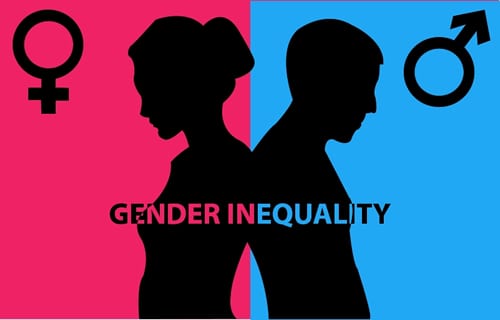Dr. Agnes Ntibanyurwa, Deputy Country Representative of the United Nations Populations Fund (UNFPA) says men need to play active roles in creating a gender equal world-free of biases against women.
She said ending stereotypes and discrimination against women and girls could not be attained without the collaboration of male counterparts.
Dr. Ntibanyurwa, was speaking at a Men and Boys Dialogue, organised by the United Nations Populations Fund in Accra, as part of activities to mark the international Women’s Day.
The dialogue, which was held in partnership with the British High Commission discussed ways men can support and promote female empowerment.
Dr Ntibanyurwa reminded men that cooking, and house chores was not the sole responsibility of women and girls but a collective role for both.
She said certain gender norms in the Ghanian communities are proven to aid the perpetuation of harmful practices against women, adding, “these same norms prevent men from seeking health services as it portrays them as weak people,”
Dr Ntibanyurwa said gender norms and traditions which allows men to treat women as their properties reinforces the notion that men own the bodies of their wives.
These practices, she said affected the access of women to reproductive health services, rights to decision on the use of contraceptives.
“Until men are made to get involved in the promotion of the Sexual and Reproductive Rights for females, we cannot achieve zero maternal deaths” she said.
She said the UNFPA in partnership with the Ministry of Gender and Social Protection was developing a National Strategy to standardize all activities related to gender norms to enable the ministry to ensure uniformity.
She urged men not to be threatened by the success of women, but rather, get involved in building them up.
Amidu Ibrahim Tanko, Executive Director of Star Ghana Foundation said in breaking the biases against women, society needed to train boys and girls to always support each other.
He urged men to be good role models that will challenge stereotypes that portray women as inferior to men.
Dr Foster Nanewortor, a Lecturer and a Mental Health Consultant at the Ghana Police Service said the Ghanaian communities have over the years been dominated by males centered cultures which make men feel more superior and important than women.
He said women were very intelligent people and must be given the opportunity to deliver at the workplace and in their communities.
Master Jeremiah Komla Mayunyo Jnr. a pupil of St Martin de Porres School said the notion that women belonged to the kitchen has changed, he encouraged boys to help girls in house chores and appreciate the efforts of girls in their class.
The International Women’s Day (IWD) is celebrated on March 8, each year to draw attention to the social, economic, cultural, and political circumstances of women while galvanizing actions to achieve equality for women.
This year’s celebration is on the theme “Gender equality today for a sustainable tomorrow” with a hashtag “Break the Bias” it envisages a gender equal world free of bias, stereotypes, and discrimination.



